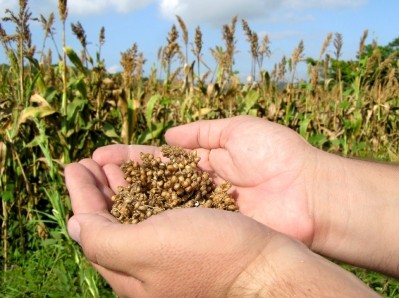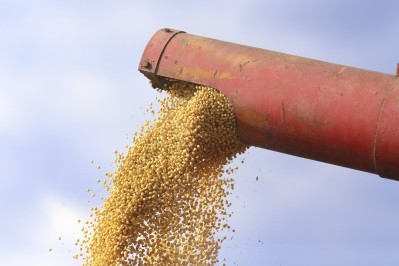Cargill sees earnings, revenues drop on grain prices, trade

Overall, the company had adjusted operating earnings of $1.64bn, a drop of 15% from the previous year, the company reported. The Minnesota-headquartered agribusiness released its fourth quarter and full fiscal year results on Wednesday.
Revenues for the fiscal year running from June 1 to May 31, were $107.2bn, said Cargill. That amount was a decline of about 11% from the previous year.
However, on a US GAAP (generally accepted accounting principles) basis the company’s net earnings were $2.38bn, an improvement of 50% from fiscal 2015, said Cargill. The non-GAAP financial measure excludes several factors including timing differences related to inventory, derivatives and hedging, losses on sales of long-term assets and businesses and asset impairment and restructuring changes.
The company saw strength in several sectors including global animal nutrition, value-added protein and poultry, it reported. Trading activities had more mixed results stemming from low volatility in the agricultural commodity markets for much of the year combined with stalling growth in some emerging economies.
Segment details
Origination and processing was not profitable for the fourth quarter, and full-year earnings decreased from the previous year, said Cargill. Good growing weather and poor global demand resulted in large grain stocks, low volatility and weak prices – all of which reduced trading opportunities.
In the fourth quarter, challenges with trading and timing in oilseed processing negatively influenced results, the company said. But, a new oilseed crush, refining and port facility was finished in northeastern China and a joint venture for a grain export terminal in the Ukraine was established.
The company also is working to expand its oilseed processing operations in Brazil and Kansas, it said. And, several sales have been made, including for crop insurance and crop inputs in Central and Eastern Europe.
There was better segment performance in South America and China overall and for the last quarter of the year, the company said.
The adjusted operating earnings for the animal nutrition and protein area improved in the fourth quarter, said Cargill. But, full year results were below prior year numbers.
Difficult market conditions in beef in the global market lasted through the first three quarters of the year, although there was improvement in North America for the final quarter of the fiscal year, the company said.
Other portions of the segment, including global animal nutrition, turkey and value-added protein in North America and global poultry, outside of China, saw stronger performance for the quarter, the company said. Cargill also acquired salmon nutrition company EWOS and about $500m in acquisitions and investments aimed at expanding the North American protein business.
Fourth quarter specifics
In the fourth quarter, which ran from March to May 31, the company saw an adjusted operating loss and a decline in revenue, Cargill reported.
The operating loss of $19m was in contrast to the $230m profit in the period prior, said the company. Revenues declined by 5% to a total of $27.1bn
The company has already started making changes to improve future results said David MacLennan, Cargill’s chairman and CEO in a release.
“We have more work to do, but where we have already made changes we are seeing improved results,” he said. Among those changes has been a reshaping of the company portfolio, he added.
“We made important changes, adding capabilities essential to our customers’ success,” he said. “This includes more than $3bn in strategic acquisitions and new or expanded facilities, as well as nearly $2.4bn in divestitures. These moves are making us more competitive in sectors where we intend to lead.”
Additional efforts
Along with the strategic work at the company, there have been efforts made to alter some company practices, said MacLennan. Cargill saved about $200m through a focus on efficiency in plants and supply chain and by increasing global shared services.
The company also has started work with the World Resources Institute to focus on water and forest use by global agriculture, it reported.












